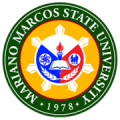<B><P align=left><FONT face=Verdana size=5>MMSU is national university</FONT></P></B>
MMSU HAS been selected as one of only four higher education institutions (HEI) in the country identified by the National Agriculture and Fisheries Education System (NAFES) as national university for both agriculture and fisheries education.
As national university, MMSU will receive Php1-M assistance each for agriculture and fisheries annually for five years, or a total of Php10-M. The two colleges have already submitted their work and financial plans to NAFES.
Included in the plans are scholarship programs, continuing agriculture and fisheries education, faculty/student exchange, instructional materials development, upgrading of facilities and library holdings, research capability building for human resources and facilities, conduct of exhibits/fairs and commercialization of research.
The NAFES Technical Committee visited the College of Aquatic Sciences and Applied Technology (CASAT) on Feb. 15-17 and assessed the instruction, physical facilities, and research and extension programs in the college. Being a Center of Development in Agriculture, the College of Agriculture and Forestry (CAF) was exempted from evaluation.
Four other HEIs were named National University or College of Fisheries (NUCF): Central Luzon State University (Region III), Western Philippines University (Region IV-B), University of the Philippines in the Visayas (Region VI), and Cebu State College of Science and Technology, Carmen Campus (Region VII).
Ten institutions were accredited as National University or College of Agriculture: MMSU (Region I), Isabela State University (Region II), Central Luzon State University (Region III), University of the Philippines-Los Baños (Region IV-A), Western Philippines University-Aborlan Campus (MIMAROPA), Camarines Sur State Agricultural College (Region V), Aklan State University (Region VI), Silliman University (Region VII), Visayas State University, Main Campus (Region VIII), and Agusan del Sur State College of Agriculture and Technology (CARAGA).
Prof. Facundo B. Asia, CASAT dean, considers the NUCF status as \"a big challenge.\" \"We have to work hard and continue to do what we have started and be a model in so far as fisheries and aquatic sciences education, research, and extension are concerned,\" Prof. Asia said.
Dr. Carmelo J. Esteban, CAF dean, attributes this feat to the committed service of faculty and staff, the generous support of the administration, and the fruitful collaboration of the college with its partner agencies and linkages, including local government units and the Department of Agriculture.
NAFES was formed pursuant to R.A. 8435 or the Agriculture and Fisheries Modernization Act (AFMA) of 1997 which seeks to establish a network of National Centers of Excellence (NCEs) and Provincial Institutions (PIs) in agriculture and fisheries education.
NAFES aims to modernize and rationalize agriculture and fisheries education from the elementary to the tertiary levels; to unify, coordinate, and improve the system of implementation of academic programs geared toward achieving agriculture and fisheries development in the country; and to upgrade the quality, ensure sustainability, and promote global competitiveness, at all levels, of agriculture and fisheries education.
A significant rise in enrolment at both CAF and CASAT has been observed this year.
Gallery
Dear Valued Client,
We will be introducing our newly upgraded website on October 31, 2024 – offering faster access, improved navigation, and enriched content for students, faculty, partners, and stakeholders. Experience how we cultivate minds and transform futures at MMSU.

 CAFSD
CAFSD CASAT
CASAT CAS
CAS CBEA
CBEA CCIS
CCIS COE
COE CHS
CHS CIT
CIT CTE
CTE COM
COM CVM
CVM Graduate School
Graduate School




